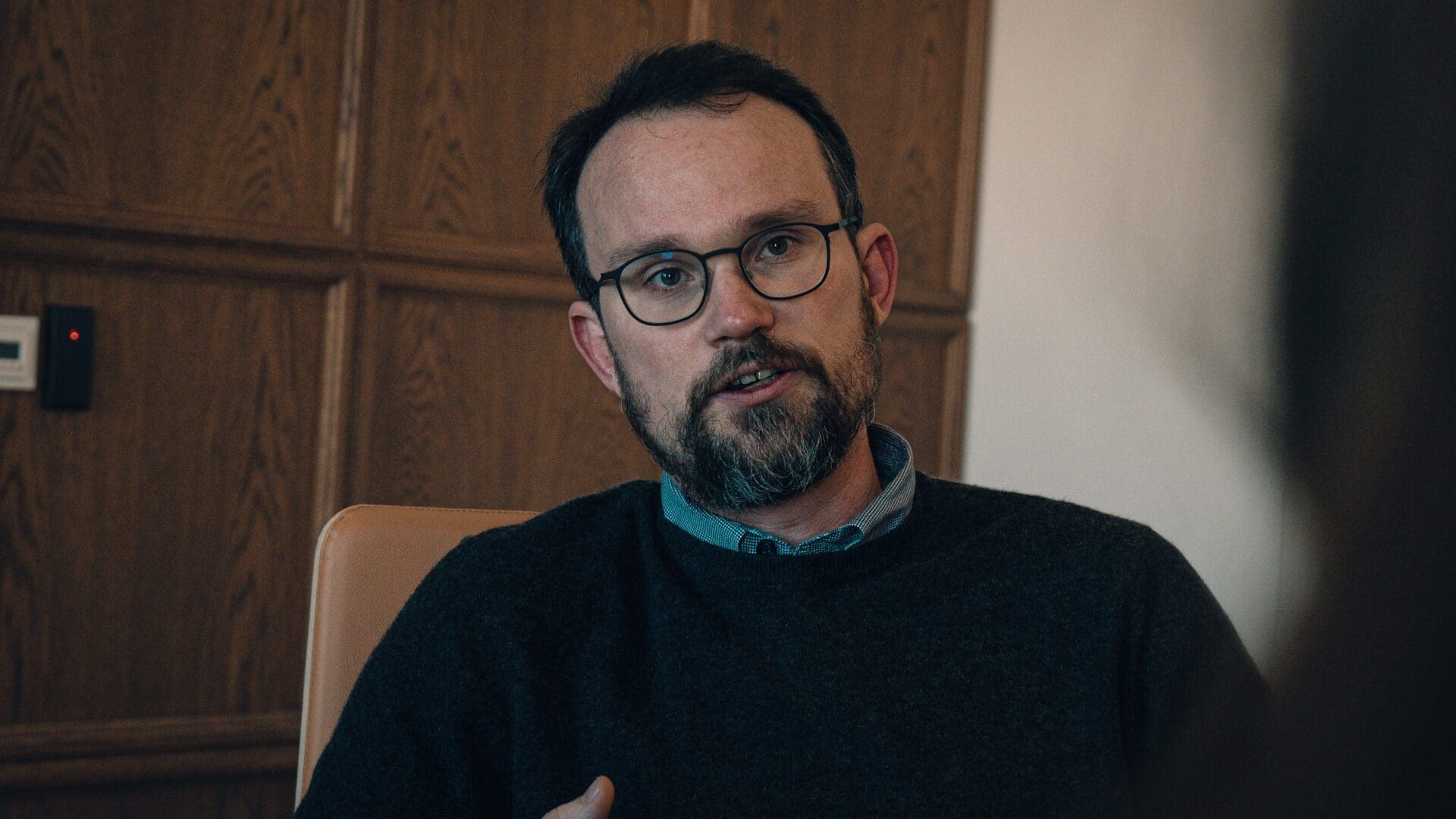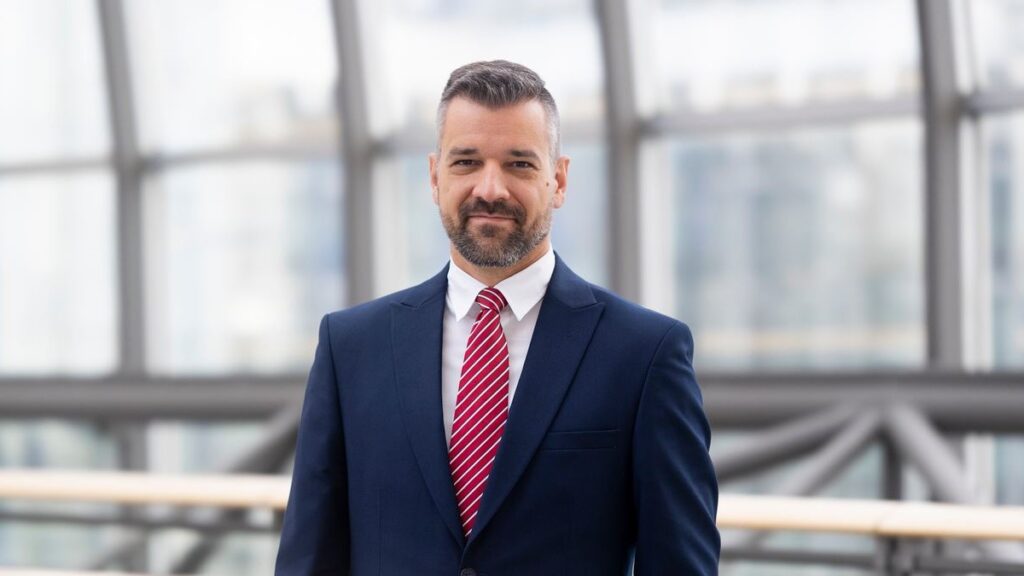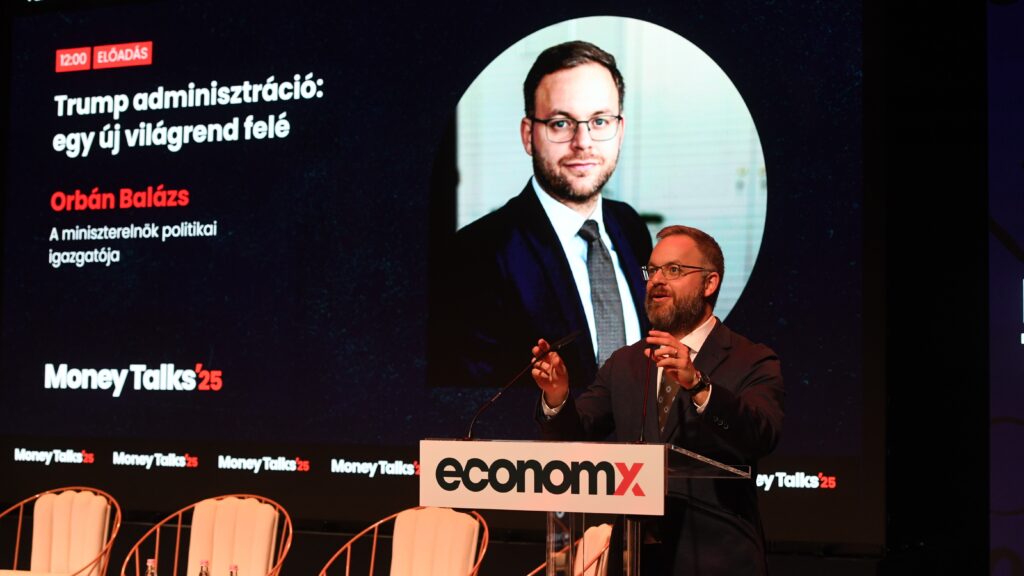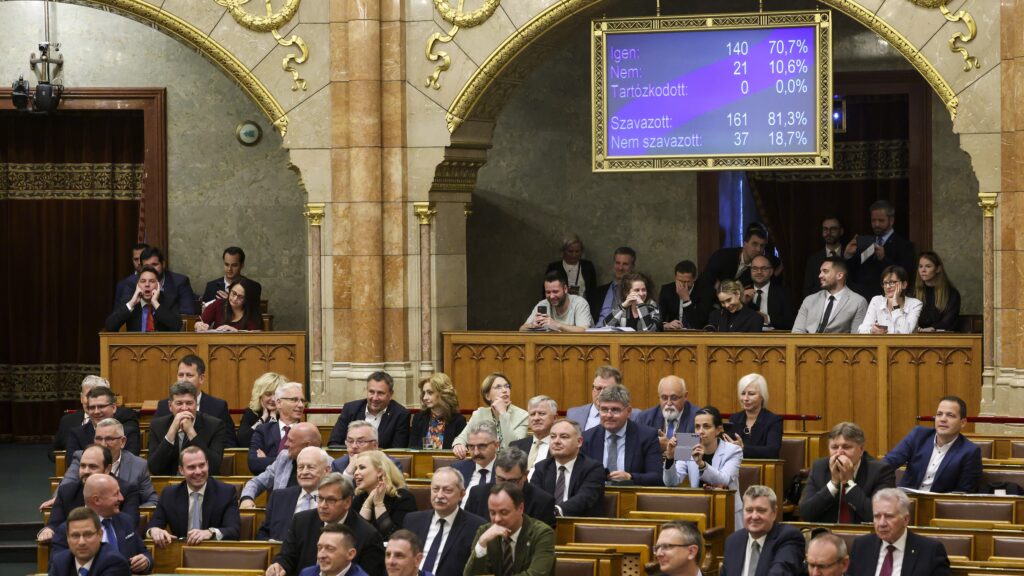Dr Samuel Noble holds a PhD from KU Leuven, an MPhil from Yale University and an MA from the American University of Beirut. His research focuses on the social and intellectual history of Arabic-speaking Christians and the interactions between Levantine Christians and Eastern Europe. He is most recently co-editor of the books Arabic Christianity between the Ottoman Levant and Eastern Europe (Brill, 2021) and Arabic-Type Books Printed in Istanbul, Wallachia and Beyond (De Gruyter, 2024). Orthodox Christianity is crucial for the future of Europe, he told Hungarian Conservative following his lecture at the Danube Institute in Budapest on 31 January 2024. The researcher recalled that Orthodox Christianity is the largest religion in three of the nine recognized EU candidate countries, and the other six also have a significant community, so the European Union would be very wrong if it considered these states around the borders of Europe as belonging to the Russian sphere.
***
In your lecture, you stated, and I quote, that ‘historically, Orthodox Christianity, as such, has generally been highly amenable to fostering and preserving national identities’. What does that mean exactly?
There are a number of features that lead Orthodoxy to be amenable to fostering national identities. One of the most important of these is the structure of the Orthodox Church as being a sort of constellation or confederation of independent churches on a territorial basis. And once you have independent churches on a territorial basis, this quite closely approximates modern nation-states. Additionally, the Orthodox churches always have had a tendency to use national languages–and this is not exactly the same thing as using the local spoken language. In some countries, like Romania, this is the case, but in other countries, they use a classical version of their national language. So it is not just in a territorial sense, it’s also in a linguistic and cultural sense that these churches maintain a strong connection to respective national pasts and come to be seen as the bearers of a national heritage and identity. If you see any of the Orthodox churches in South-Eastern Europe, the Romanian Church, the Serbian church, and the church of Greece, their establishment as independent churches was closely tied to both the formation of their respective national states but the existence of Orthodox Christian institutions in each of these goes back much deeper into the past, really back to Roman times. In this way, the churches provide continuity with the whole arc of each of these countries’ history.
Why is Orthodoxy important today, and why is it important for the future of Europe?
Orthodoxy is important for the future of Europe simply because it is the second largest form of Christianity. I don’t put much stock in religious statistics, but we’re talking about something like 200 million people, depending on how you count. It is a religious tradition that unites people from North Africa and the Middle East, to the Balkans, Eastern Europe, all the way to Alaska, in America. So it’s quite culturally diverse and has a global span. In terms of its importance to Europe, there are currently four countries with an Orthodox Christian majority within the European Union: Greece, Cyprus, Romania, and Bulgaria. But if you look at the nine recognized candidate countries for membership of the European Union, there six countries with an Orthodox majority among them: Ukraine, Moldova, Georgia, Serbia, Montenegro and North Macedonia. Additionally, Bosnia and Albania have significant Orthodox populations and Türkiye is the seat of the Ecumenical Patriarchate of Constantinople, which is the first in honour among the Orthodox churches.
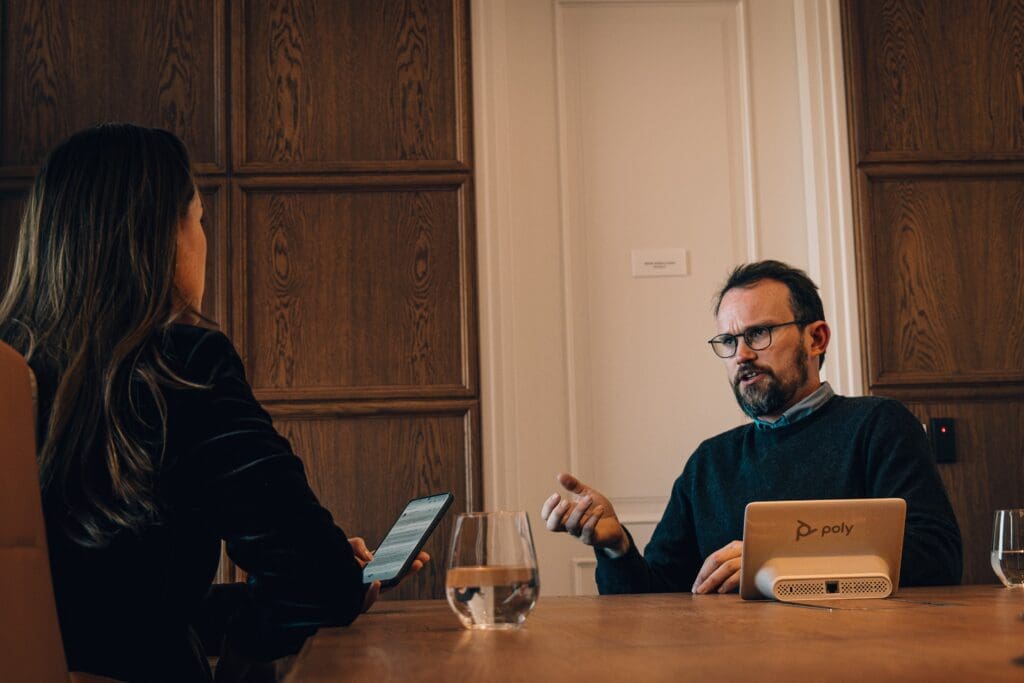
Could you explain what the West misunderstands about the Orthodox world, and how that affects our geopolitical relations?
Since the beginning of the 2000s, there has been a view based on Samuel Huntington’s theory, or rather misunderstanding, that Orthodoxy constitutes a world civilization comparable to the West, China or the Islamic world, and that it is centred around Russia. This is a very dangerous misapprehension because of Orthodoxy being so critical for the future expansions of the European Union and the future of what Europe looks like. If these states around the borders of Europe are seen as being in a Russian sphere, then we are approaching things very badly. What we’ve seen in the past 30 years is the former communist Orthodox countries, perhaps especially Romania, trying to distance themselves politically as much as possible from Russia, and embracing admission or candidacy to the European Union, embracing membership in NATO. So it’s a mistake to see Orthodoxy as a coherent geopolitical actor, but doubly a mistake to see it as a coherent geopolitical actor under a Russian umbrella. Russia is an actor within an Orthodox space, certainly. But Russia doesn’t stand for Orthodoxy. Russia also doesn’t understand itself as an exclusively Orthodox actor. They prefer talking about traditional religions, where Orthodoxy might have a kind of pride of place, as the main religion of ethnic Russians, but it’s always side by side with the other traditional religions of Judaism, Buddhism, but especially Islam, which is extremely politically important in Russia, for obvious reasons.
Could you explain how, despite all this, the West has the impression that Russia pulls the Orthodox world under its own umbrella?
It’s an easy impression to have just based on Russia’s size, both in absolute terms and relative to the size of other Orthodox Christian countries. Russia is a fact that the West has to deal with, and the whole world has to deal with and so it’s natural for people in the West to think of Russia first when thinking about the Orthodox world. But we have to remember that Orthodoxy is not the main focus of Russia’s foreign policy. Even if you look at Russia’s intervention in Syria in 2015, in practice, it probably did save the Syrian Christian population. But was that Russia’s motive? No, certainly not.
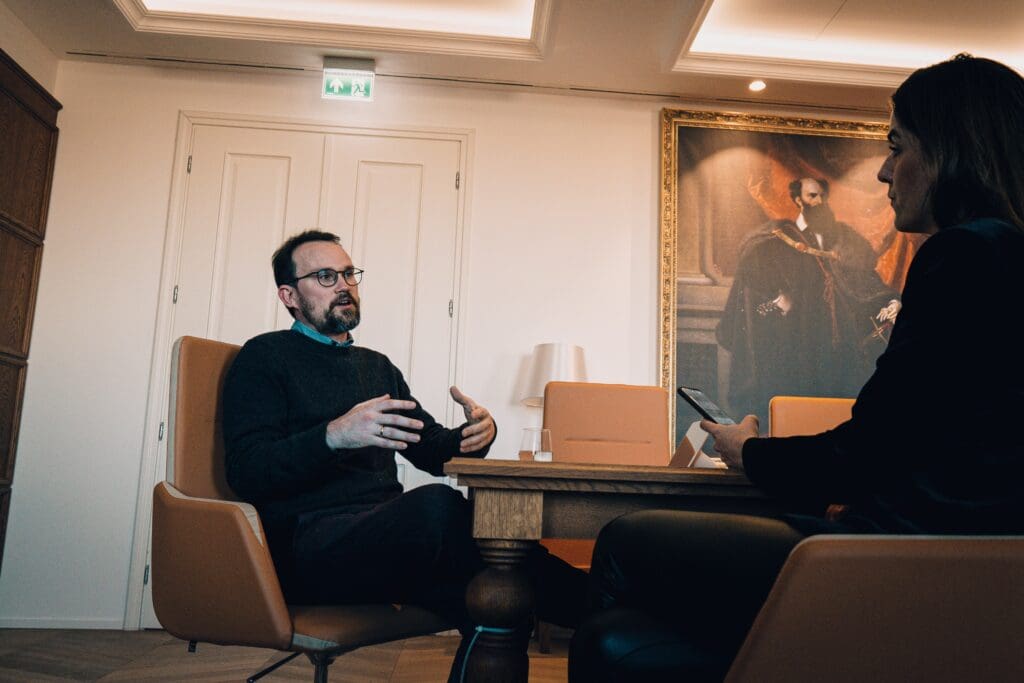
Last spring, during his visit to Hungary, Pope Francis met with the Russian Metropolitan Hilarion Alfeyev, the governor of the Hungarian Orthodox Diocese, who maintains a close relationship with Patriarch Kirill. What makes such a meeting so important? What is it telling the world?
There has been a lot of criticism of Pope Francis for his desire to continue to engage the Russian Orthodox Church. In particular, the Ukrainian Greek Catholic Church has been very sharply critical and accuses Pope Francis of continuing the Ostpolitik that the Vatican practiced in the Soviet period. However, I don’t think that Pope Francis’s meeting with Metropolitan Hilarion was an ‘endorsement’ of the Russian Orthodox Church’s behaviour during the war in Ukraine. If anything, having contact with elements of the Russian Orthodox Church is important simply to keep channels of communication open. And after this war is over, it’s going to become necessary to heal these broken relationships, and hopefully, the opportunity will present itself. It is also worth remembering that Metropolitan Hilarion had formerly been what amounts to the foreign minister of the Russian Orthodox Church. Immediately before the invasion, he gave a couple of public sermons condemning war in generic terms, but everybody understood what he meant, so he was removed from that position and sent to Budapest. He is someone that it may be possible to communicate with in a positive way.
During your stay in Budapest, did you have a chance to engage with the Hungarian Orthodox community?
Some years ago, I came to Budapest to be the godfather of a baby who was baptized here in the Serbian Orthodox church. So I had the pleasure to meet clergy at this event, from both the Greek church and the Serbian church. I have also been learning some about the Ukrainians who have come here and how various churches are making pastoral efforts to take care of them. There is a historically deeply rooted Orthodox presence here, and I hope that I’ll get to learn more about it during my stay.
Related articles:

